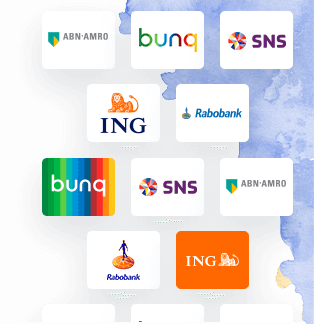
Are you an EU citizen? Will you be working during your studies? Which health insurance provider is best for your specific needs? These are the kinds of questions you should be asking yourself before you decide on your health insurance provider. But don’t worry, we will walk you through the Dutch healthcare system and Dutch health insurance so you can cycle peacefully, knowing the healthcare system has got your back (literally, they will fix your back if you hurt it).
Do you actually need student health insurance?
This is the ultimate question. If you are a full-time student in the Netherlands and are NOT working, you are not obligated to have Dutch health insurance. However, if you would like to benefit from the Dutch healthcare system, we recommend you to get one. Your insurance should be provided by your home country.
Check with your home country on whether or not they provide free health cover for the duration of your studies. You may have to take out health insurance in your home country with enough coverage to last while you are abroad. If you are an EU citizen, this may be done via a European Health Insurance Card. You should also make sure the status of your health insurance won’t change at any point during your studies. If it does, make sure you have a backup plan. For example, the NHS covers students from the UK right now, however, this may change after Brexit.
This all changes, however, if you take up a part-time job here in the Netherlands. Anyone that works in the Netherlands is required to have Dutch healthcare insurance - by law! This means you are legally obliged to take out health insurance with a private company, whether you are in possession of a European healthcare card or not.
So if you’re here to just study? No Dutch health insurance. And if you have a part-time job or paid internship? You need Dutch health insurance.
The Dutch healthcare system
The Dutch healthcare system is divided into three categories.
- Long-term care for chronic conditions, which are covered by mandatory state insurance.
- Basic and essential medical care like huisarts (GP) visits, short-term hospital stays, which are covered by private health insurance.
- And finally, supplementary care like dental care, physiotherapy, etc. - you can cover this in health insurance depending on your policy.
GP's are generally your first point of contact as they refer you to specialists if needed, so it is important to register with a huisarts in your local area. For international students, we recommend looking for a huisarts post where the GP's can communicate in English. You can find more information on Dutch GP's here and if you get our free Soft-Landing Package we'll sign you up with a GP that can meet your needs.
Prescription medicines are only available from an apotheek (pharmacy). Dental care is provided by Tandarts (dentist) and is not covered with basic health insurance providers unless you take out a policy with a provider that covers this (or will contribute towards the total cost). If you’re prone to teeth-problems, we recommend you opt for this as self-funding your dental care can be extremely pricey in the Netherlands.
What Healthcare package/insurer should I opt for?
This depends on what your healthcare needs are. If you think you’ll only need to be covered when things go wrong, then basic health insurance will be your best option as this will cover things like doctor visits, medical specialists, pharmaceuticals and more. This will cost you approximately €116 per month and the insurance is offered by a number of health insurance providers.
One thing to note is that basic health insurance has an excess fee. This means that you will need to fork out for any accumulated expenses under €385 a year but any annual accumulated expenses over €385 will be covered by the student health insurance. So if you end up paying hundreds on a broken arm and it sends you over the threshold, you might as well start getting all your blood tests done and any other work you need, as you can’t be charged more than that amount.
Remember that if you do decide to take out student health insurance in the Netherlands then you must do so within the first three months of acquiring your residence permit, so be on the ball and sort it out early or you could face a fine.
So what company do I choose?
Well, providers such as LoonZorg have no excess expenses. They also provide additional services like dental care. This option may be wise for the accident-prone among us because an unexpected cracked tooth may set you back a few hundred euros, more than the annual insurance cost. LoonZorg offers two different healthcare insurance packages for international students.
Another popular healthcare provider for internationals in the Netherlands is de nieuwe dokter. The latter is a huisarts with an innovative approach towards healthcare. The practice is deliberately small-scale with the aim of guaranteeing sufficient attention to every one of their patients. People often feel alienated from their healthcare provider, so their ethos is to reduce the barriers between doctor and patient.
Ultimately, there are a lot of options out there. However, we understand that most of you don't feel like doing an investigation before coming over here, so feel free to contact us so we can figure out the best option for you.
Financial support
Being a student can be financially demanding - especially when all those far-too-accessible Dutch, Belgian, and German beers are calling your name. For most students, health insurance can be a real burden. However, luckily the Dutch government makes it easier for students that may not be able to afford to pay all of the costs of healthcare.
The state offers healthcare allowance (zorgtoeslag) to help cover your monthly premiums. To receive the allowance you must meet certain criteria such as not having too much income, so make sure to check these before applying. If you are entitled to this government benefit, you will receive just under €100 a month and you don’t have to pay this money back. Keep in mind that In order to apply for the zorgtoeslag, you will need a DigiD (a Dutch online identity that also comes with our free Soft-Landing Package).
We understand that all this information regarding the the Dutch healthcare system may feel daunting, but if you take some time to follow the links in this article, you'll get the hang of it in no time.


























